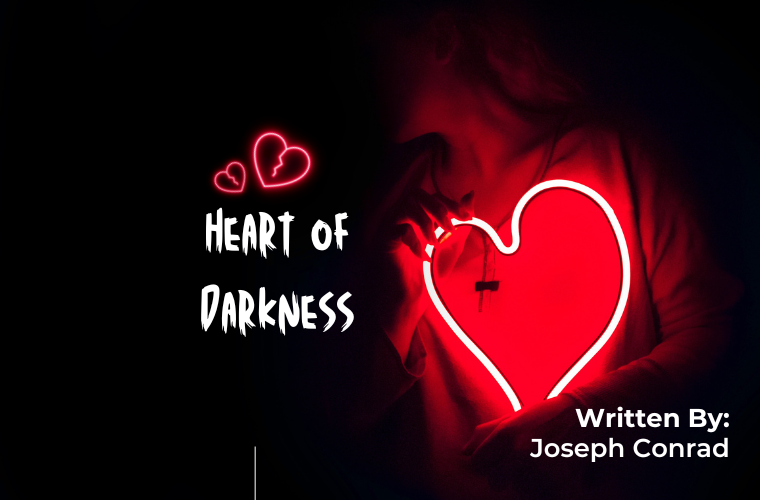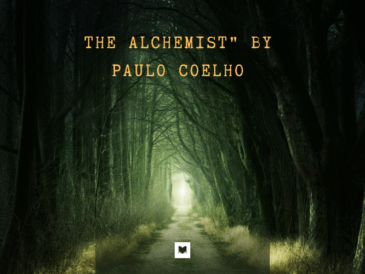Life and Legacy
Joseph Conrad was a Polish-British author Heart of Darkness by Joseph Conrad .who considered one of the greatest novelists in the English language. Born Józef Teodor Konrad Korzeniowski in 1857 in Berdychiv, Ukraine, Conrad lived a fascinating life that informed much of his writing.
As a young man, Conrad worked as a sailor and traveled the world, visiting exotic locales and encountering a variety of cultures and peoples. This experience of life at sea and the complexities of the colonial enterprise would later serve as inspiration for many of his greatest works, including Heart of Darkness.
Despite his status as a master of English prose, Conrad did not learn the language until he was in his twenties. His novels are know for their vivid and evocative style. As well as their exploration of themes such as imperialism, moral ambiguity, and the darkness of the human soul.
In addition to Heart of Darkness, Conrad’s other notable works include Lord Jim, Nostromo, and The Secret Agent. His contributions to the field of English literature have widely recognized, and his influence can be seen in the works of many subsequent writers.
Joseph Conrad passed away in 1924 at the age of 66, leaving behind a rich and powerful legacy that continues to inspire readers and writers to this day.
Introduction to Heart of Darkness
Heart of Darkness is a novella by Joseph Conrad and published in 1899.
The story is a frame narrative, with the main narrator Marlow telling his companions aboard. A ship about his journey up the Congo River in search of the elusive ivory trader Kurtz.
The novella is set in the context of European imperialism and explores themes of race, colonialism, and the human psyche.
The story has been highly influential in literature and has been the subject of numerous critical analyses and controversies.
explores the dark side of humanity and the effects of colonialism on both the colonized and the colonizers. The novella delves into the themes of racism, exploitation, and greed, as well as the psychological effects of isolation, power, and the descent into madness.
One of the most iconic aspects of Heart of Darkness is its narrative style, which is characterized by complex, layered prose and an ambiguous, fragmented structure.
Conrad’s use of symbolism and metaphor is also notable, with the “darkness” of the title representing both the physical darkness of the African continent as well as the moral and psychological darkness that Marlow encounters on his journey.
Since its publication, Heart of Darkness has been the subject of numerous critical analyses and controversies. The novella has been interpreted in various ways, with some readers viewing it as a critique of colonialism and others as perpetuating the very racism it seeks to condemn.
Despite these debates, the novella has had a profound influence on literature and has been adapted into various forms, including film, radio, and television.
Historical Context
To fully appreciate the themes and context of Heart of Darkness, it’s important to understand the historical context
At the time of publication, European powers were engaged in a “scramble for Africa,” a period of intense colonization and exploitation of African resources.
Joseph Conrad, a Polish-born author who spoke English as a second language, had personal experience with colonialism, having worked as a sailor for a Belgian trading company in the Congo.
This experience influenced Conrad’s portrayal of the brutal and dehumanizing effects of imperialism on both the colonizers and the colonized in Heart of Darkness.
Furthermore, the novella reflects the widespread racism and cultural attitudes of the time, particularly towards African peoples, that were prevalent in European society. Heart of Darkness by Joseph Conrad
Plot Summary
Heart of Darkness follows the journey of Charles Marlow, a sailor and adventurer. Who takes a job as a steamboat captain with a Belgian trading company operating in the Congo River basin.
Marlow is taske with journeying up the river to retrieve a mysterious and enigmatic ivory trader named Kurtz. Who has gone rogue and become a god-like figure to the local tribespeople.
As Marlow progresses further into the heart of the jungle. He witnesses the horrors of imperialism firsthand, encountering brutal violence, exploitation, and inhumane working conditions.
Finally, Marlow reaches Kurtz’s station and discovers that Kurtz has gone insane, driven mad by his own pursuit of power and the brutal conditions of colonial life. Heart of Darkness by Joseph Conrad
In the end, Marlow must confront the darkness within himself as he reflects on the devastating effects of colonialism and the destructive power of human greed.
Analysis of the Characters
Heart of Darkness features a cast of complex and often enigmatic characters, each representing different aspects of the novella’s themes and ideas.
The main protagonist, Charles Marlow, is a sailor and adventurer. Who serves as the primary narrator of the story. Marlow is portrayed as an observer and critic of the colonial system. But he also possesses a dark and ambiguous side, as seen in his obsession with Kurtz and his complicity in the exploitation of African peoples.
Kurtz, the central figure of the novella, is a symbol of the corrupting influence of power and imperialism. He is both revere and feared by the local tribespeople, and his descent into madness represents the psychological toll of colonialism on both the colonizers and the colonized.
Other characters, such as the Company’s manager and the Russian trader, also play important roles in the story and contribute to the overall commentary on imperialism and its effects.
Through the use of vivid and nuanced characterization, Conrad explores the complex and often contradictory forces at play in the colonial enterprise.
Themes Explored
Heart of Darkness is a complex and multi-layered work that explores a variety of themes and ideas.
One of the most prominent themes is the darkness of the human psyche and the destructive power of human greed. Through the character of Kurtz and his descent into madness, Conrad portrays. The devastating effects of unchecked ambition and the corrupting influence of power.
Another important theme is the darkness of colonialism and its impact on both the colonizers and the colonized. Conrad portrays the brutal and inhumane conditions of colonial life. As well as the widespread racism and cultural attitudes that underpinned the system.
The theme of journey and exploration is also central to the novella. As Marlow’s journey up the Congo River represents both a physical and psychological journey into the heart of darkness.
Finally, the theme of moral ambiguity is also present throughout the story. As characters struggle with conflicting moral and ethical dilemmas in the context of the colonial enterprise.
Through the exploration of these and other themes, Conrad crafts a nuanced and powerful critique of imperialism and its devastating effects on the human psyche and society as a whole.
Symbolism
Heart of Darkness is rich with symbolism, with many objects, events, and characters representing deeper themes and ideas.
One of the most significant symbols is the Congo River itself. Which represents both a physical and psychological journey into the heart of darkness. As Marlow progresses up the river, he confronts the brutal realities of colonialism and the darkness within himself.
Kurtz, the enigmatic and god-like ivory trader, also serves as a powerful symbol of the corrupting influence of power and imperialism. His obsession with ivory and his descent into madness represent. The devastating effects of unchecked ambition and the destructive power of human greed.
The jungle, with its oppressive heat, dense vegetation, and constant threat of danger, is another important symbol in the novella. It represents the unknown and the uncivilized. As well as the hidden aspects of the human psyche that \unleashed in the context of colonialism.
Other symbols, such as the Company’s abandoned station and the image of heads on spikes. Also contribute to the overall sense of horror and moral decay that pervades the story.
Through the use of powerful and evocative symbolism, Conrad creates. A haunting and unforgettable portrait of the darkness within the human soul and the destructive forces at play in the colonial enterprise.





